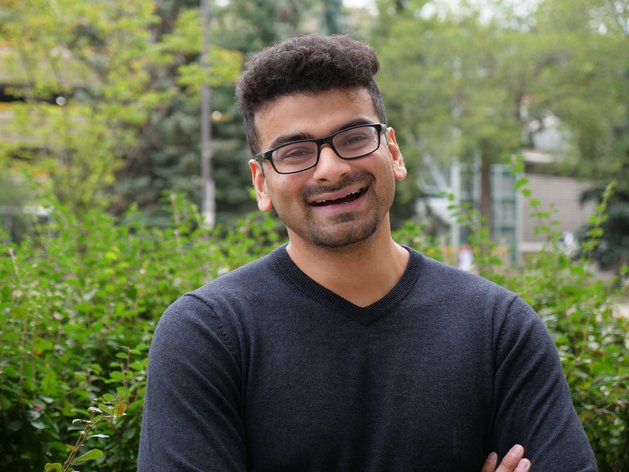University of Alberta medical student Zohaib Siddiqi has a strong passion for student advocacy. He was inspired to run for the Alberta Medical Association’s student representative position and was excited when his class elected him to the seat because he understood the opportunities that the role could offer him.
As a student representative, Zohaib sits on the AMA board. Although student members can’t vote, they can attend meetings. Zohaib says he has learned a great deal from his role as an observer, including knowledge about health economics and the AMA’s income equity initiative. He says, “I consider myself fortunate to be around people who are really, really successful and people who know a lot about these things.”

The student representative serves a one-year board term. The role alternates annually between Alberta’s two medical schools, the University of Alberta and the University of Calgary. While a student from one school is an AMA board member, a student from the other is a board member of the College of Physicians & Surgeons of Alberta. This approach allows people from each program to bring unique perspectives to the table. Zohaib says the AMA position resonated with him because “you can get involved with a real organization … you can attend conferences where physicians who have been working in the subject for years and years … can mentor you.”
Although the board position lasts only one year, the student representative is elected for a four-year term. During his board tenure, Zohaib has coordinated events, attended meetings, communicated with other medical students and voted at Representative Forums. In his second year, he will pass those responsibilities on to and mentor the newly elected first-year U of A representative, who will join the board for the CPSA.
Later, when Zohaib reaches his third and fourth years in medical school, his representative duties will diminish to accommodate the focus on and time commitments of clerkship and clinical rotations. He still sees value in the Representative Forum participation at that time, though. “You still kind of have your foot in the door; you still have a way to communicate with different people and learn a lot more.”
Learning is not the only reason Zohaib wants to be involved with the AMA. He started his undergraduate degree in political science and economics, then transferred into neuroscience because he liked learning about how the brain worked. When he moved into medicine, he says, “Making an impact on the large scale still resonates with me and I love working with patients. I love working in the clinical environment, even though I have limited experience.”
Zohaib believes that involvement with the AMA allows him to participate in those larger-scale advocacy issues. He believes we have a strong health care system in Alberta, but there is more that we can accomplish. One way to learn about the health care system and what is needed is through the AMA. He says the organization’s advocacy for physicians is important. “If physicians are healthy, if physicians are happy, that directly relates to patients as well as patient care.”
His goal to improve the health care system goes beyond his desire to become a skilled doctor. Zohaib also wants to support patients through work on pharmacare because “there are thousands of people in Canada who can’t afford proper medication … because of that, they present in the emergency department.”
The AMA is not the only way medical students can get involved in the field of medicine during their studies. Zohaib suggests that they can invest their time in other ways such as joining the Medical Students’ Association executive or the Government Affairs and Advocacy Committee – or even starting their own initiatives to engage with politicians.
He also suggests that aspiring doctors might want to consider undertaking other studies first and then transitioning into medical school, much like he did. The decision to do it might be difficult because people often want to start their careers as quickly as possible. However, Zohaib says, “Doing a lot of other things before medical school, whether it’s teaching, volunteering, travelling, doing research; all these things are related to medicine.” These types of outside activities will shape what you get involved in during medical school and teach you things that “will eventually help you later in your career, even if you can’t see that right now.”
Of his own experience beyond his medical school courses, Zohaib says, “I am passionate about advocacy … even though my terms ends as board member this December, I still hope to be involved in the AMA and see where I can go.”

